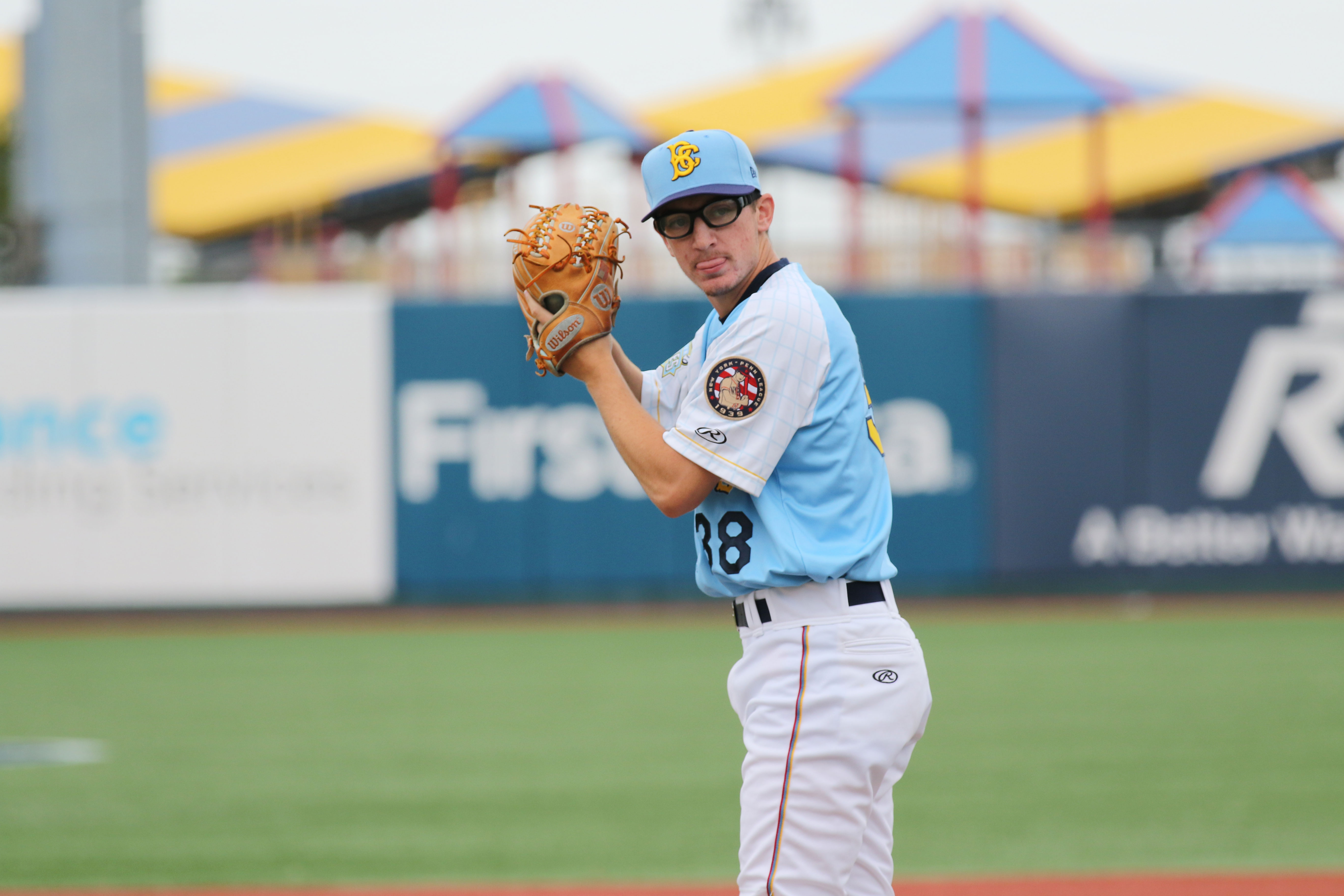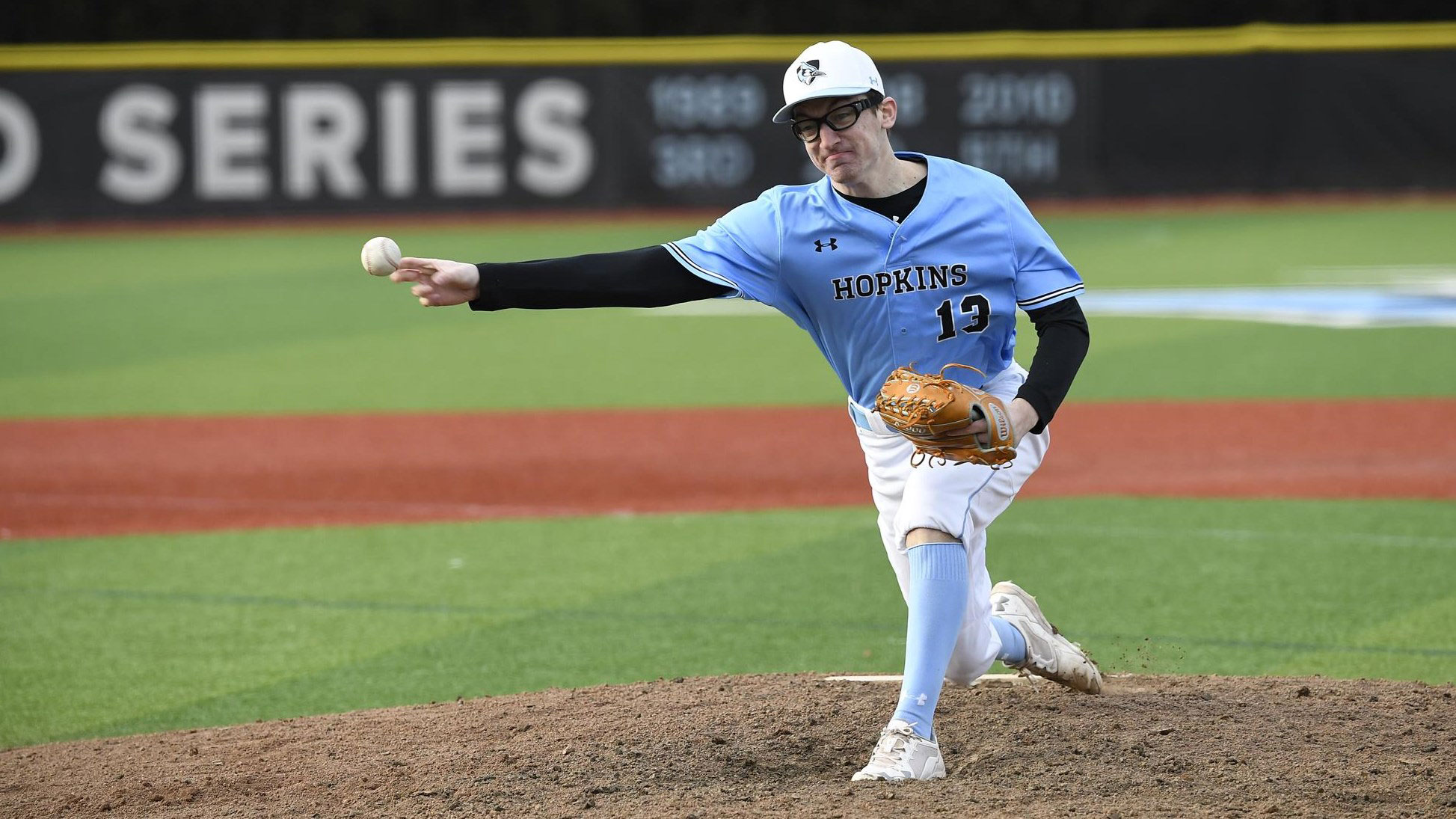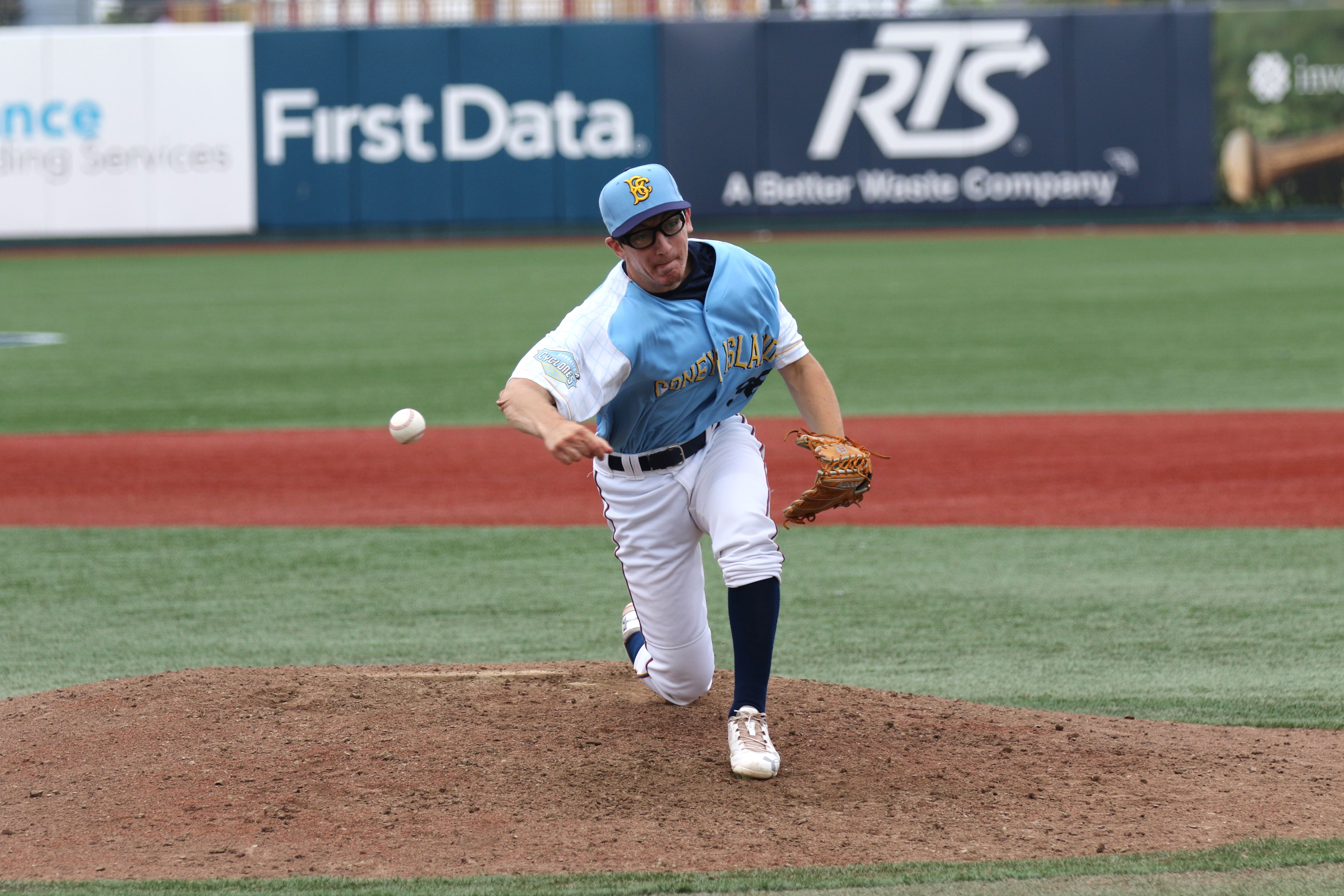CONEY ISLAND, NY – Josh Hejka knew two things to be true during the summer between his sophomore and junior years at Divine Child High School in Dearborn, Michigan.
He wanted to pitch – he had done so throughout his childhood and on the school’s freshman team in 2012. When he cracked the Falcons’ varsity team the following season, he was confined to second base. Hejka also knew that he didn’t throw very hard, or at least not hard enough to crack a rotation comprised of three student-athletes who had already procured Division I scholarship offers.
Head coach Tony Demare offered a seemingly simple piece of advice that ultimately changed Hejka’s life and sent him on a whirlwind of a baseball adventure that has landed him in the New York Mets organization as a professional relief pitcher: if Hejka wanted to pitch for Divine Child, he would have to do something to stand out.
—
Hejka, a lifelong native of Dearborn, had tried to pitch – rather, messed around – from a sidearm slot when he was nine years old. He hit a batter in a Little League game and never did it again, all but shoving the memory to the back of his brain until Demare suggested the unorthodox motion as a means of getting Hejka back on the mound.
Except this time, he was releasing the ball mere inches from the ground. Hejka, a junior in high school, was now officially a submarine pitcher. It wasn’t an easy process.
“It took forever,” he said. “I worked all fall and winter, then the first time I pitched in the spring, I walked nine guys in 1 2/3 innings and gave up like eight runs.”
Hejka continued to work, experimenting with different starting points and release angles and eventually settled on one that he found comfortable.
“A lot of it is just trying to keep your head steady so you can still pick up the target,” he said. “If you throw overhand, your head is steady the entire time. That’s the hardest part, just to know where you’re looking while your head is bobbing up and down.”
If you had never seen him pitch before, nothing strikes you as unusual when Hejka first takes the mound, save for the high socks and Rec Specs combo. The right-hander gets set with his back gently arched and his hands together about a foot in front of his face.
Then, things get simultaneously violent and graceful. He quickly drops down into a crouch, sweeps his arms back behind his legs, and makes a hard pivot on his right foot to swing his body around towards the batter. He extends his right arm perpendicular to the ground and sends the pitch toward the plate.
What’s the saying? It’s only weird if it doesn’t work.
—
It’s not easy for a player who went unrecruited out of high school to crack a college baseball roster. That process is made more challenging when said player is mechanically dissimilar to what most coaches are accustomed to.
Hejka fell into this mold. He had a list of “dream” schools, ones known for academics with an opportunity to play baseball. At the top were multiple Ivy League institutions and MIT.
No one was interested. Then, he called Johns Hopkins University in Baltimore. The Division III program there had just graduated a submarine pitcher, so the staff was intrigued. Hejka enrolled in the fall of 2015.
“Hopkins was an amazing school,” he said. “I wanted to use baseball to help me get into a school like that. I’ve always had this dream of playing professional baseball but I never knew how tangible that was so I always wanted that backup plan of having a good degree.
“As I got closer to graduation, I said, ‘I don’t need a backup plan, this is my plan. Baseball is the plan and I’m going to do everything I can to play baseball until someone says I can’t.’”
When a career in baseball began to come into focus, Hejka knew he had to take his craft more seriously. Instead of watching YouTube videos of major-league slingers like Darren O’Day and Steve Cishek, as he had for years, Hejka booked a spot at “sidearmers camp,” run by Geoff Freeborn, the head coach at the University of Calgary and the owner of Sidearm Nation, and various guests.
One in particular, former major league submariner and one-time Mets reliever Chad Bradford, left a literal lasting impression. He taught Hejka his changeup.
“I’ve started to use that this year and I’ve had a lot of success with it, which is pretty cool,” Hejka said. “It’s still a process. There’s still a lot to learn and get better at, so it’s never done.”
Used as a reliever throughout his Hopkins career, Hejka periodically pleaded head coach Bob Babb for an opportunity to start. When Hejka got his chance, during his senior season this past spring, the stakes were slightly higher than he had originally imagined.
“One of our starters got hurt when the playoffs came around, so Coach Babb said “you’ve been asking for this your entire career, here’s your chance.” So I ended up pitching the conference championship game against Haverford.”
Hejka came through, tossing a complete game on just 79 pitches to send the Blue Jays to a Division III Tournament appearance. Less than two weeks later, he was on the mound again, starting the Regional opener against SUNY Farmingdale. Another start, another complete game, this time with a career-high 11 strikeouts.
The pinnacle moment of Hejka’s senior season, however, came in JHU’s first College World Series appearance since 2010. He first threw 152 pitches over 9 2/3 innings in the opener to advance the team to the national quarterfinals. Two days later, he tossed a scoreless inning in an elimination game to get Hopkins into the semifinals.
FINAL: Jays top @BabsonBaseball 6-5 as Josh Hejka works out of a 9th inning jam. Next up … a date later tonight with @BSCBaseball pic.twitter.com/ac5FM68hck
— Johns Hopkins Baseball (@JHUBaseball) June 2, 2019
“My mentality when I’m pitching is that I never want to be taken out of a game,” Hejka said. “As a starter, the only way you can do that is by going the whole game, so that’s the mentality I tried to carry into it. I wanted to pitch the entire game and be that guy for the team. Especially in the World Series, it was one of those things where, as seniors, we wanted to lead and do that for our team and try to bring home a championship.”
—
Sometime during his final season at Hopkins, Hejka created a profile on Linkedin. Since the scouts weren’t coming to him, he went to them. Hejka estimates that he sent about 600 connection invitations on the website to major league amateur scouts. 20, maybe 30, responded.
He invited them to his start in the conference championship game. Other than getting his name out there, nothing came of it. He went undrafted in June.
So, Hejka went back home. Still wanting to play somewhere, he tried out for the United Shore Professional Baseball League, an independent circuit located about 30 minutes from Dearborn. He got the gig and moved on as a member of the Westside Woolly Mammoths.
“The beauty of it is that it’s four teams, all in the same stadium, and the stadium was 30 minutes from my house,” he said. “So I got to live at home, I didn’t have to travel long distances for away games, it was really a perfect storm. And they get a lot of guys signed out of there, especially pitchers, so I thought it was the perfect opportunity for me.”
Hejka doesn’t know if it was the Linkedin page that did it. Maybe the Mets were just looking for pitchers in the independent leagues that day. Either way, he got the call after just two weeks with the Mammoths. He officially signed on June 27 and was assigned to the organization’s Rookie-level affiliate in Kingsport.
“The Mammoths had been using me as a closer so I was about to go down to the bullpen to get loose,” Hejka recalled. “My coach comes up to me and said I wasn’t pitching. He said, ‘the Mets just called us, they’re going to sign you tomorrow.’ My dad was at the game and I went up to him in between innings and he hugged me and we both started crying.
“It was a really nice moment and it felt like the culmination of everything. Especially with how much uncertainty there was. A lot of independent ball guys don’t get signed, so I didn’t know what my chances were, but I was just playing every day and doing my best.”
—
In addition to being an undrafted free agent, Hejka will have the overcome the stereotype of being a “trick pitcher” and prove that he’s just as worthy of a spot in professional baseball as his teammates. To gain any possible advantage, the former computer science major has absorbed himself in data that is both publicly available and provided to him through the Mets’ internal portal.
“It’s really cool to be able to look at that data and try to understand it, then manipulate it,” Hejka said. “With Statcast being publicly available I can look at O’Day, Cishek, Adam Cimber, and all these guys and see exactly what their fastball looks like, their spin rate, their horizontal and vertical movement, their release height. That’s been pretty cool to look at some of that stuff and emulate what some of these other guys are doing.”
He also compares his metrics to those of Stephen Villines, a fellow Mets sidearmer currently pitching with the Double-A Binghamton Rumble Ponies. Hejka is looking forward to meeting him during spring training next year.
For someone who never could have imagined that a lofty goal like playing professional baseball was attainable, Hejka’s experience with Kingsport, and now the Short-Season A Brooklyn Cyclones, has been everything and then some.
“It’s honestly amazing,” he said. “Getting to play in front of these crowds every day, especially here in Brooklyn, it’s a beautiful stadium, the clubhouse is beautiful, everything about it is beautiful. Playing with these guys, like Jake Mangum, the all-time SEC hits leader, and Antoine Duplantis, second all-time SEC hits leader, all these guys I’ve watched on TV and now I get to play against them and with them. It’s been an absolute joy just being able to fulfill this dream of mine.”




